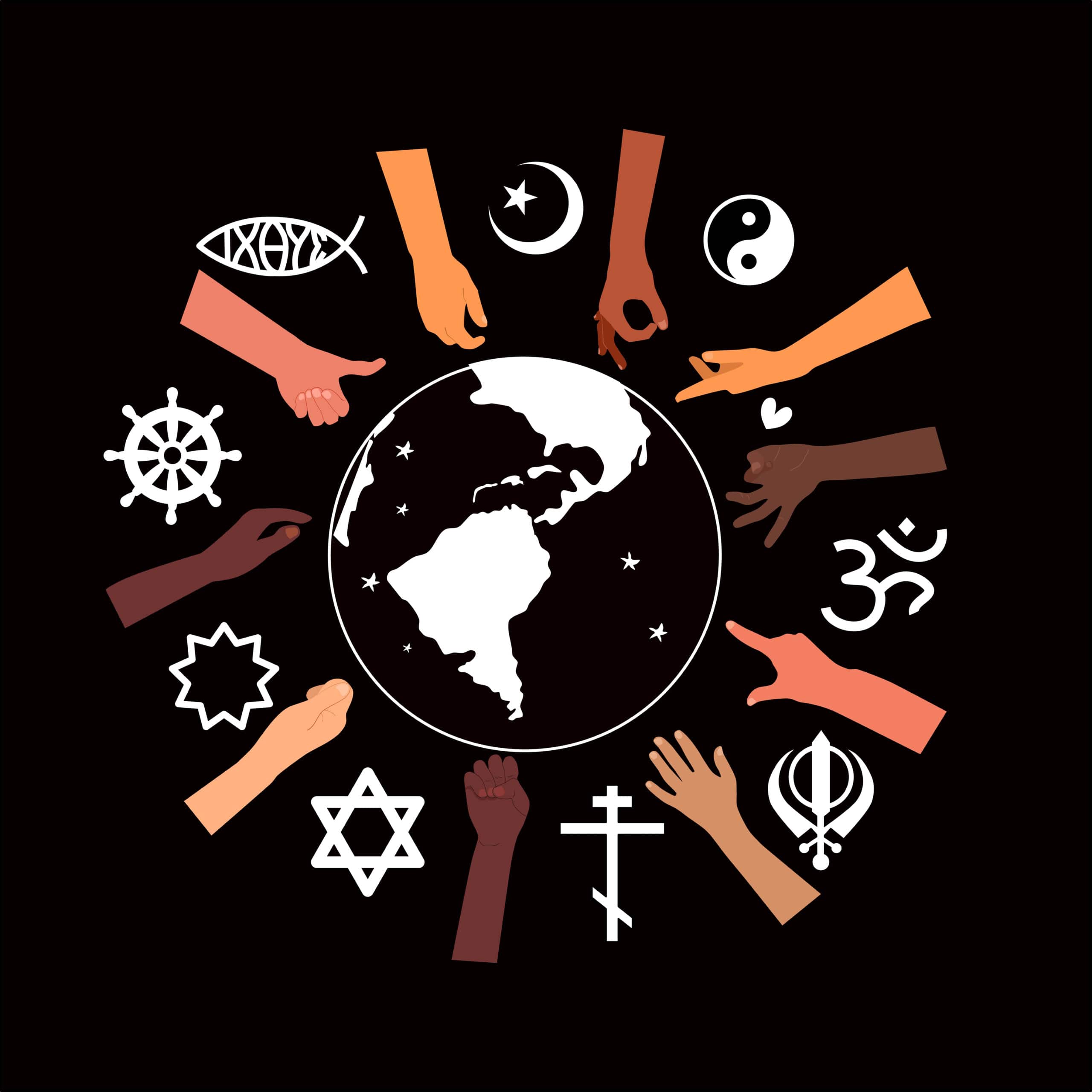Australia is a vibrant and multicultural country known for its rich cultural tapestry and diverse population. One of the key aspects of this diversity is the wide range of religious beliefs and practices that coexist within the nation. From indigenous spiritualities to established world religions, Australia is home to a variety of religious traditions that shape the lives and identities of its people.
Major Religions in Australia
The religious landscape of Australia is characterized by the presence of several major religions. Christianity, brought to the country by European settlers, is the largest religious affiliation in Australia. Within Christianity, various denominations such as Catholicism, Anglicanism, and Protestantism thrive. Australia is also home to a thriving Jewish community. Additionally, Islam has a significant presence, primarily due to immigration from countries such as Indonesia, Lebanon, and Turkey. Buddhism, Hinduism, and Sikhism also have growing communities in Australia, reflecting the country’s increasing cultural diversity.
Beliefs and Practices of Different Religions in Australia
Each religious tradition in Australia is unique, with its own set of beliefs and practices. Christianity, for example, centers around the teachings of Jesus Christ and the Holy Bible. Christians gather in churches for worship, participate in sacraments such as baptism and communion, and engage in acts of charity and service. Islam, on the other hand, follows the teachings of the Prophet Muhammad as revealed in the Quran. Muslims pray five times a day, observe fasting during Ramadan, and strive to live according to the principles of compassion, justice, and submission to God.
Judaism, similarly, is an ancient monotheistic faith. Jewish practices include observing the Sabbath, celebrating festivals like Hanukkah and Passover, and adhering to dietary laws, notably kosher dietary restrictions.
Buddhism emphasizes the pursuit of enlightenment through meditation and moral conduct. Buddhists practice mindfulness, engage in acts of compassion, and seek to alleviate suffering. Hinduism encompasses a wide range of beliefs and practices, including the worship of various deities, performing rituals, and pursuing spiritual liberation. Sikhism, with its emphasis on equality and service, encourages adherents to meditate, engage in honest labor, and support charitable causes.
The Importance of Tolerance and Acceptance in a Diverse Society
In a society as diverse as Australia, tolerance and acceptance are crucial for fostering harmony and cohesion. Recognizing and respecting the religious beliefs and practices of others is not only a sign of empathy and compassion but also a fundamental human right. Tolerance allows individuals to coexist peacefully, embracing their differences while finding common ground.
When we practice tolerance and acceptance, we create an environment where individuals can freely express their religious identities and beliefs without fear of discrimination or prejudice. This inclusive atmosphere promotes social cohesion, understanding, and respect among different religious communities. It also enables individuals to learn from one another, fostering a sense of unity and shared humanity.
Challenges and Misconceptions Surrounding Diversity in Australia
Despite the importance of tolerance and acceptance, religious diversity in Australia faces certain challenges and misconceptions. One challenge is the prevalence of stereotypes and prejudices that can lead to discrimination and marginalization. These stereotypes often stem from a lack of understanding and misinformation about different religions. For example, some may wrongly associate Islam with terrorism or view Buddhism as a purely mystical tradition.
Another challenge is the perception that religious diversity threatens national identity or social cohesion. However, research shows that religious diversity can contribute to the social fabric of a nation, enriching cultural exchange and fostering a sense of belonging among diverse communities.
To address these challenges, education, and interfaith dialogue are essential. By promoting accurate information and encouraging respectful conversations among different religious groups, we can dispel misconceptions and foster a more inclusive society.
Promoting Interfaith Dialogue and Understanding
Interfaith dialogue plays a crucial role in promoting understanding and building bridges between different religious communities in Australia. It provides an opportunity for individuals to engage in open and respectful conversations, sharing their beliefs and experiences while seeking common ground.
Interfaith organizations and initiatives bring together representatives from different religious traditions, creating spaces for dialogue and collaboration. Through interfaith dialogue, participants can challenge stereotypes, deepen their knowledge, and foster mutual respect. These conversations often lead to joint projects that address social issues and promote harmony within local communities.
Celebrating Religious Festivals and Traditions in Australia
Australia is a country where religious festivals and traditions from various faiths are celebrated and embraced. These celebrations provide an opportunity for individuals from different religious backgrounds to come together, learn from one another, and celebrate their shared values.
From Christmas and Easter in Christianity to Eid al-Fitr in Islam, Diwali in Hinduism, Vesak in Buddhism, Hanukkah in Judaism, and Vaisakhi in Sikhism, Australians have the chance to participate in a range of festive events. These celebrations often involve rituals, prayers, music, dance, and shared meals, offering an immersive experience of the diverse religious practices that shape Australia’s cultural fabric.
Government Policies and Initiatives to Support Religious Diversity
The Australian government recognizes the importance of religious diversity and has implemented policies and initiatives to support and protect the rights of religious communities. These policies aim to ensure that individuals are free to practice their religion without discrimination or hindrance.
The Australian Human Rights Commission plays a pivotal role in promoting and protecting religious freedom. It investigates complaints related to discrimination and guides individuals and organizations on their rights and responsibilities. Additionally, the government funds programs that promote interfaith dialogue, cultural understanding, and religious literacy, fostering a more inclusive society.
Religious Organizations and Community Engagement
Religious organizations in Australia play a vital role in fostering community engagement and social cohesion. They provide not only places of worship but also spaces for community gatherings, education, and support services.
These organizations often engage in charitable activities, addressing social issues such as poverty, homelessness, and mental health. They also facilitate interfaith dialogue and collaborate with other community groups to promote understanding and cooperation.
Places of Worship
Places of worship serve as important community hubs where individuals come together for religious observance, spiritual reflection, and community engagement. Australia is home to a wide range of religious buildings, including churches, mosques, temples, gurdwaras, synagogues, and more.
These places of worship are not only sacred spaces but also symbols of religious diversity and cultural heritage. They often welcome visitors, providing opportunities for interfaith dialogue, guided tours, and educational programs. By opening their doors to the wider community, places of worship contribute to greater understanding and acceptance of diverse traditions.
Australians’ General Views of Religion
Australia’s general views on religion reflect the country’s multicultural and secular nature. A significant portion of the population identifies as religious, while others identify as non-affiliated or hold spiritual beliefs outside traditional religious frameworks.
Research shows that Australians generally have positive attitudes towards religious diversity and consider it an important aspect of the country’s identity. They value the contributions of religious communities to society, such as their charitable work and social cohesion efforts. However, some individuals may hold misconceptions or harbor biases, highlighting the need for ongoing education and dialogue.
Embracing Diversity and Fostering Acceptance
Australia’s religious mosaic reflects its multicultural heritage and diverse beliefs, which are crucial for harmony. Promoting interfaith dialogue, celebrating festivals, and fostering understanding can unite the nation. Government policies, religious bodies, and community engagement all support this. Let’s embrace our diverse mosaic, fostering a society that respects all beliefs. Together, we navigate Australia’s religious diversity with empathy and acceptance.
Contact IC Australia Today to Start Your Journey to Australia!


